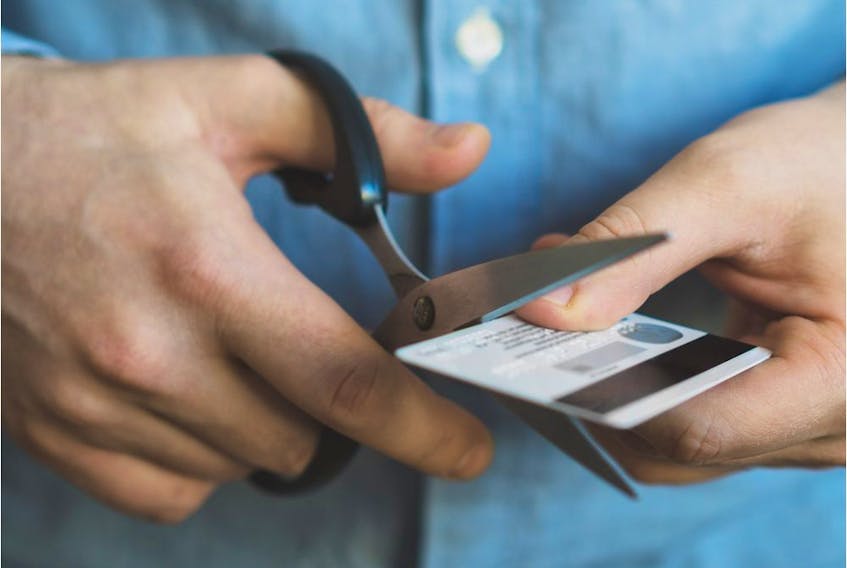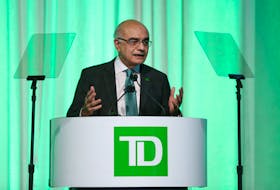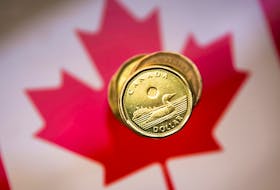Q: My son is in his mid-20s and he feels trapped with nearly $92,000 of debt that he started amassing the day he turned 19. Most of his debt comes from buying expensive trucks. He would trade the truck in before it’s paid off, taking on a new loan for a new truck, plus spreading payments out for seven or more years to keep them down to something he had a hope of affording. Right now, even if he sold his truck for top dollar, he’d still owe thousands. I don’t know what to suggest to help him get out of debt and on with his life. Help! ~Monique
A: Taking on staggering amounts of debt starting at a young age makes for an extremely difficult start to adulthood. Many young people are ill prepared to fully appreciate how debt will impact their lives, and your son is unfortunately living through this right now.
There are mistakes that people of any age make when they’re trying to deal with their debts; one of the biggest is waiting too long to get help. I would strongly encourage your son to seek professional help immediately. He needs information and guidance about how to deal with his debts, which are likely causing him a lot of stress and worry. One of our credit counsellors would be happy to review his situation with him and point him in the right direction.
Six other big mistakes when dealing with debt
When it comes to getting out of debt, here are six other big mistakes people make and what to do instead:
Planning to pay debt down just to go back into debt again
Paying debt down needs to be a lifestyle choice, not part of your plan to finance more of your lifestyle. Rather than think about paying off your credit cards so that you qualify for a bigger car loan or mortgage, stop yourself. Instead, look at what you can reasonably afford for the bigger purchases while also paying your credit cards off every month.
Canadians have become accustomed to living with debt. This can lead to financial instability when factors beyond our control change, e.g. interest rates increase, job loss, illness, forced early retirement, just to name a few. Work hard to pay down your debt and enjoy the peace of mind that living within your means affords.
Is There Really Such a Thing As Good Debt?
Waiting too long to take action
Maybe you’re in denial, maybe you’re convinced something else is standing in your way. Or maybe, you’re waiting for a raise so that you’ve got the money to pay off your debts. Procrastination ultimately leads to more debt as interest and fees accumulate.
The ideal time to start paying off debt is right now. Here are tips and strategies to get you started . And again, if you think you’re in over you’re head and don’t know what to do, get help sooner than later.
Is Fear Holding You Back from Consolidating Your Debt?
Trying to borrow your way out of debt
Debt consolidation has its place, but it must be used as a tool within a bigger plan. Debt consolidation works best when you’ve got a budget and you know how much you can afford to spend on all of life’s expenses. A realistic budget will help ensure that you don’t reuse any of the credit that you paid off with the loan, or you will find yourself deeper in debt than before you had the loan.
Try this interactive budget calculator to juggle your budget details until you’ve got a balance you can live with.
Giving in to every spending opportunity
Learn to say “no.” No to an impulsive purchase; no to buying everything you think you want; and no to every drink, coffee, dinner or other friendly invitation that isn’t in your budget. No one has an unlimited amount of money. If you think all of the little purchases don’t add up, go without them. You’ll quickly see that you’ve got extra in your budget to put toward your goals.
Money Mistakes That Keep You Broke
Not having any savings
It might seem counterintuitive to build up your savings while you’re trying to pay down debt, but if you don’t, you’ll never get out of the debt cycle. Unexpected or emergency expenses are the rule, not the exception; it’s wise to plan that they will happen and hope that they don’t. Savings is your safety net; your credit card or line of credit might seem like a safety net, but that’s an illusion. Relying on credit when faced with a crisis will only result in more debt. Save up at least enough to get you through a month without a paycheque. Then, start to tackle your debts.
10 Reasons to Save Even When Borrowing is Cheap and Easy
Not making debt a priority
Getting into debt is the easy part; getting out of debt takes a lot of determination and hard work. It can be a rough road. Stop avoiding your debt. Look at what you owe and actively take steps to not get further into debt. Even if you don’t know how to pay your debts down, it is essential not to keep going further into debt. Interest rates are still low so this a great time to get ahead. Prioritize making extra debt payments and you will see results.
How to Get Out of Debt and Stay Out of Debt
The bottom line on mistakes people make trying to get out of debt
There’s no one perfect method; no single best way to get out of debt that will work for everyone. It depends on what got you into debt as well as your thoughts, feelings and intentions about money. If you’re worrying about money, understand that that is not the same as managing money. If you must worry, pick a few minutes each day to allow yourself to do just that. Pick a time that has a natural limit so that you’re forced to move on from your worries. A lot of people find their worry time to be while they brush their teeth or shampoo their hair. The rest of the day, plan, strategize, learn about — do anything but worry about money. You’ll soon see your positive, action-oriented thoughts take over and help you get to where you want to be.
Scott Hannah is president of the Credit Counselling Society, a non-profit organization. For more information about managing your money or debt, contact Scott by email , check www.nomoredebts.org or call 1-888-527-8999.
Copyright Postmedia Network Inc., 2019









